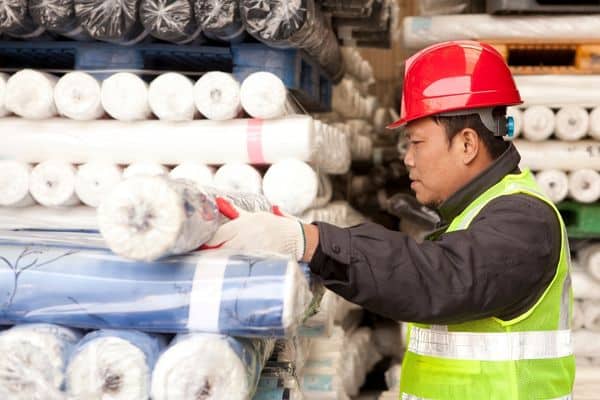There are three basic human needs— food, clothing, and shelter. As such, textile engineering has been around for so long and is one of the professions that cannot go into extinction. Instead, textile engineering is predicted to increase by about 7% between 2016 and 2026, making it a readily available job.
To make life easier, we have teamed up with professionals from job aggregator Jooble to discuss the profession. We will also enlighten you on how to kickstart this career path. Let’s proceed.
Table of Contents
What is Textile Engineering?
Textile engineering involves the application of engineering to the textile production and improvement of textiles. Textile engineers develop quality textile products and also improve the quality of manufacturing process. They also research and look for ways to reduce the amount spent on clothes production without reducing the quality.
Textile is a big deal all over the world. For instance, countries like Bangladesh, China, Germany, Vietnam, India, and Turkey are some of the world’s largest textile manufacturers. They hire many textile engineers, and you can be guaranteed a job in textile engineering in these countries.
A minimum of a bachelor’s degree in engineering (B.Sc. in Textile Engineering) is required to work as a textile engineer. What knowledge is needed to work as a textile engineer? Continue reading to find out.
Textile is not only about wearable clothes, as companies use textiles in their day-to-day operations. Such companies include transportation, agriculture, sporting, medical, and construction companies. Textile engineering jobs are not only available but also pay well. The average annual salary for a textile engineer is $95,000. Meanwhile, some engineers earn as much as $150,000 per annum.
Steps Towards Becoming A Textile Engineer
Textile engineering jobs include designing fiber processing systems and machinery used to manufacture cloth, fiber, apparel, and other products. Individuals who opt for a career as textile engineers are creative and innovative because the job involves the application of scientific laws in everyday work responsibilities.
Hence, fulfilling the responsibilities of a textile engineer requires creativity, attention to detail, flexibility, and the ability to memorize information about each type of fiber and its uses in industrial products.

Below are the steps to take to become a global textile engineer.
Research the Job
The first step toward getting into the textile industry involves learning about it. Research what textile engineering is about, as well as the requirements. Also, find out where you can be employed and how much textile engineers make.
Get A Textile Engineer Degree
The basic education requirement for being a textile engineer is a degree. Get a bachelor’s degree in textile engineering from a reputable university. You can get Diploma in Textile Engineering, B.Sc. in Textile Engineering, M.Sc in Textile Engineering, PhD, even Post graduate diploma in textile.
Countries with the best universities for studying textile engineering include Malaysia, France, China, the Netherlands, the USA, the UK, and Germany, Bangladesh, India among others. These countries have universities with top-rated textile engineering courses. You can also get a scholarship to study about textile engineering in these countries.
Read More: 5 Reasons for Studying Textile: Why You Should Study Textile?
Do Textile Internship

One of the best ways to get experience before you are done with your studies is by doing internships. You can also do apprenticeships after graduation to gain experience. An internship makes you better at the job as you will get real-life experience. It will also boost your employment chances and allow you to negotiate higher pay. Internships can also be your opportunity to network.
Apply For a Textile Job

After getting the necessary qualifications and experience, applying for jobs is next. Prepare your CV and be on the lookout for available employment. You can also get jobs on reputable job search websites like Jooble.
Textile engineer skills
Apart from the education requirements and experience, some skills can help you be a good textile engineer. These skills can also improve your chances of employment.
i. Creativity
A textile engineer needs to be creative. You should be able to think outside the box. You should also be able to anticipate opportunities and think of novel ideas. Having or developing a good eye for color, texture, and pattern is an integral part of this profession.
ii. Mathematics Skills
Every process of textile manufacturing is carried out by calculation. This fact makes it necessary for a textile engineer to be good at mathematics. You should be able to calculate well to maintain the quality and strength of the materials.
iii. Problem Solving Ability

Another skill necessary for a textile engineer is the ability to solve a problem. For example, there may be textile-related problems caused by cultural differences, weather, fashion sense, age differences, etc. A textile engineer should have a positive attitude towards these problems and be able to find solutions to them.
iv. Researching Skills
A textile engineer should be able to do thorough research and gather information. This will help keep them abreast of people’s needs and manage changes related to trends, culture, and weather. Also, they should be able to research new methods to create better materials and ways to improve the old materials.
v. Good Communication and Presentation skills
A textile engineer’s job doesn’t end with developing and improving fabrics. They also deal with the coordination and presentation of their findings to investors and boards. Therefore, a textile engineer needs to have good oral and written communication skills to effectively relate the results of their jobs to the necessary parties and get the required help.
Textile Engineering Jobs
What do textile engineers do? There are different types of textile engineers, depending on what they do in the textile industry. They are as listed below.
Operations Trainee

An operation trainee is an entry-level role in textile engineering. An operations trainee works under the supervision of seniors and learns about the job. This is a great opportunity for an intern to take up.
Process Engineer
A process engineer supervises the factory production of fabrics. They make sure that the production is flawless and of top quality.
Production Engineer

Another job in textile engineering is production engineering. They manage the production processes from start to finish.
Quality Control Supervisor

A quality control supervisor is responsible for ensuring that fabrics meet all the quality standards. They test the products and evaluate the different aspects of the production.
Process Improvement Engineer
These are professionals who deal with improving the production processes. They analyze and evaluate the root cause and then write detailed reports on how to improve their quality.
Conclusion
Globalization has enriched textile engineering with numerous career opportunities. The fact that it does not require much to become a global textile engineer makes it an adorable profession. You can also set up your own business if you have the required skills and knowledge. Although there is high competition in the industry, it is a satisfying job; it gives a feeling of pride to see people endorsing the creations you developed.

Mahedi Hasan working as an Executive (Fabric Marketing) at Pengnuo Group. Graduated with B.Sc. in Textile Engineering. Before was a Top Rated content writer at Upwork, and Level 02 Seller at Fiverr, Level 02 Publisher at Ezoic. Very passionate about content writing, SEO practice, and fashion website designing. Highly Experienced fashion writer for the last 4+ years. Have extensive 7 years of experience in the wholesale clothing business.
